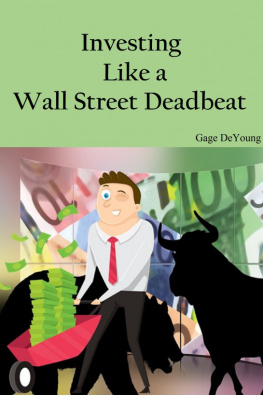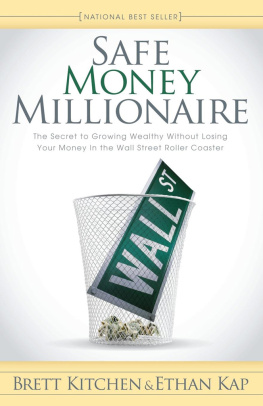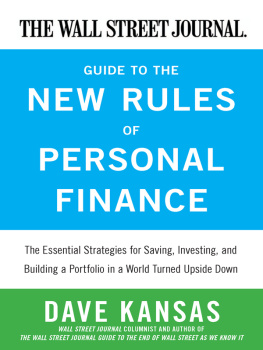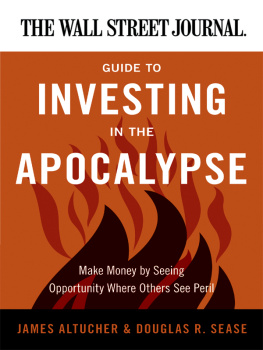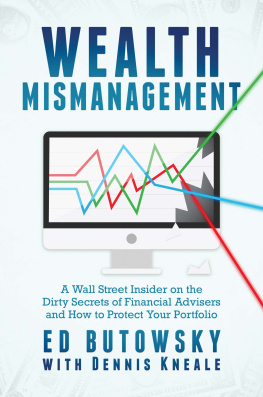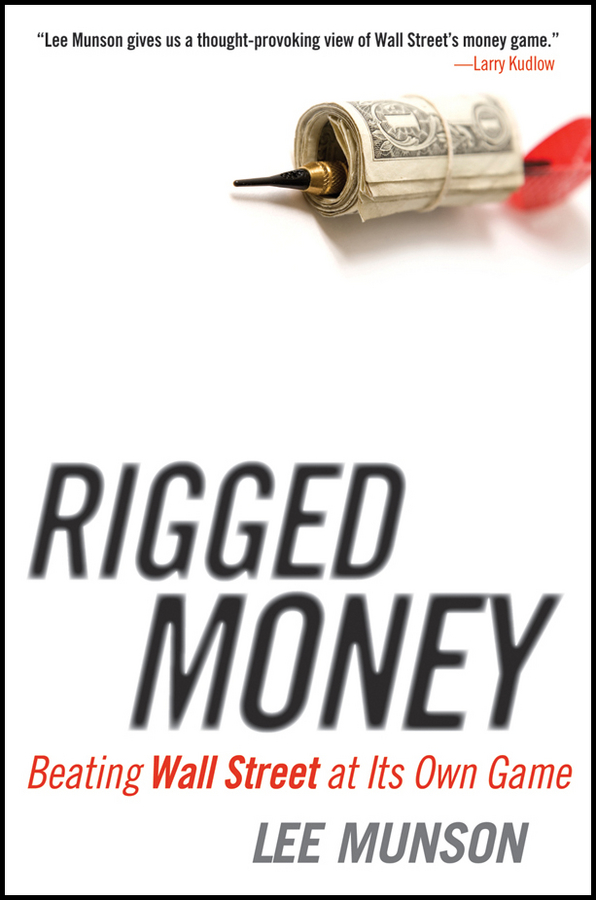Contents

Copyright 2012 by Lee Munson. All rights reserved.
Published by John Wiley & Sons, Inc., Hoboken, New Jersey.
Published simultaneously in Canada.
No part of this publication may be reproduced, stored in a retrieval system, or transmitted in any form or by any means, electronic, mechanical, photocopying, recording, scanning, or otherwise, except as permitted under Section 107 or 108 of the 1976 United States Copyright Act, without either the prior written permission of the Publisher, or authorization through payment of the appropriate per-copy fee to the Copyright Clearance Center, Inc., 222 Rosewood Drive, Danvers, MA 01923, (978) 750-8400, fax (978) 646-8600, or on the Web at www.copyright.com . Requests to the Publisher for permission should be addressed to the Permissions Department, John Wiley & Sons, Inc., 111 River Street, Hoboken, NJ 07030, (201) 748-6011, fax (201) 748-6008, or online at http://www.wiley.com/go/permissions .
Limit of Liability/Disclaimer of Warranty: While the publisher and author have used their best efforts in preparing this book, they make no representations or warranties with respect to the accuracy or completeness of the contents of this book and specifically disclaim any implied warranties of merchantability or fitness for a particular purpose. No warranty may be created or extended by sales representatives or written sales materials. The advice and strategies contained herein may not be suitable for your situation. You should consult with a professional where appropriate. Neither the publisher nor author shall be liable for any loss of profit or any other commercial damages, including but not limited to special, incidental, consequential, or other damages.
For general information on our other products and services or for technical support, please contact our Customer Care Department within the United States at (800) 762-2974, outside the United States at (317) 572-3993, or fax (317) 572-4002.
Wiley also publishes its books in a variety of electronic formats. Some content that appears in print may not be available in electronic books. For more information about Wiley products, visit our web site at www.wiley.com .
Library of Congress Cataloging-in-Publication Data:
Munson, Lee.
Rigged money : beating Wall Street at its own game / Lee Munson.
p. cm.
Includes index.
ISBN 978-1-118-09968-1 (cloth); ISBN 978-1-118-17112-7 (ebk);
ISBN 978-1-118-17113-4 (ebk); ISBN 978-1-118-17114-1 (ebk)
1. Investments. 2. Wall Street (New York, N.Y.) I. Title.
HG4515.M865 2012
332.6dc23
2011029146
To my wife and daughter, for allowing me to follow my passion.
Preface
Did it really take the 2008 meltdown to clue in the population that Wall Street was somehow rigged? Dont be nave. For 400 years, common stock and the trading of it has never been designed to make or lose you money. Its simply designed for you to participate. Most people ask the wrong questions either out of a lack of understanding of the game or because Wall Street, like a hypnotist, is suggesting the question. This book is written to unravel and illuminate those questions. I get to the bottom of why its necessary for Wall Street to have a strategy for every investor, a market for every man, and a philosophy to suit any temperament. If you are a buy and hold investor and are disillusioned by the meltdown, or if you found your asset allocation pie chart to be dubious at best, keep reading. I show you where those concepts came from, why they work or dont work, and let you be the judge. The very first company that ever floated stock in 1602 was a shaky operation that paid its dividend half in cash and half in spice. Not exactly awe inspiring. That is the start of the rigged system.
You only need to make one decision right here and right now. Do you want to be successful? If you are a young investor, you need to learn how to rub your two pennies together so that you can create a nest egg for when you may not be able to work for money. If youve spent a lifetime saving, you need to understand how to turn that nest egg into a cash-flow machine to provide yourself a lifetime of income without having to be productive in terms of our capitalist system. How is it that people are going to be retired for 30 years and not work? One hundred years ago, retirement was a euphemism for dying.
Everyone must engage the system. If youre lucky enough to have a great pension, where do you think that money comes from? The system. Do you understand what a pension manager has to do to make a check appear in your mailbox every month? We live in a global society in which industry and job security from here on out are questionable. Its not enough to preserve your capital when you quit working if you want to keep up the lifestyle youre accustomed to.
All you have to do is take one action: read this book. I dont give you all the answers, but I will tell you how to prevent Wall Street from getting you off track. Learn how Wall Street gives you answers to questions that you didnt ask.
Why Did I Write This Book?
April 1, 2001: An article was published on that April Fools Day by the New York Observer . The guy who sat next to me at Bear Stearns had a buddy named George Gurley. I had hung out with George mostly drinking with a group of guys for a few months before he asked me if I wanted to do an article with him describing the crazy world of Wall Street. It was never my intention to have my name in it, but as a wiser person today, I should have known better.
George invited me out drinking one night, started a tab, and we hung out. There were several sessions in which I espoused my philosophy about Wall Street, how it worked, how it was rigged, and the over-the-top lifestyle that people lived during a market top. I said all those words and I meant all those words. My only lapse in judgment was drinking too much as George served more and more pints of beer. I could have been more tactful in delivering my ideas, and George Gurley could have been a more professional journalist rather than encouraging me into a night of drinking to extract vulgar language over substance. In the end we were both products of the excessive times. Times have changed. I said more than 10 years ago that New York was burning and that it would fall. Five months later it didfor real. After the planes hit the Twin Towers, my fate was sealed. I would move before the end of the year back to New Mexico.
From there I got a great job at Charles Schwab, at the time the most wholesome place to work on Wall Street. It gave new meaning to squeaky-clean. And yes, I found it telling that they would take me with all the negative public relations that came with that article just because they simply wanted my experience. It also gave me a shot at maturity. This Fortune 500 company saw more than just a guy who could make money. They saw me as somebody who could do good things for Wall Street and Main Street. I began studying, first for the Certified Financial Planning designation and then to earn a Chartered Financial Analyst charter. I bought my first home and had my first child, a daughter. Will I ever be able to explain my lapse in judgment to her?
I want to teach my daughter that even if certain people in society disagree with you or what you dofollow your passion. You respect the fact that some people are ignorant and will never approve. In essence, I want to tell her: dont apologize and dont back down.
Now that Im older, I like what Business Insider did without contacting me in publishing a 10-year flashback of the ordeal. That was the defining moment because it reminded me of something. It reminded me of what I was trying to tell people back in 2001. The Business Insider retrospective of the article that came out April 1, 2011, reminded me of one thing: I had the idea in the first place, but I needed a way to communicate it to a wider audience with more wisdom and preferably with less profanity and offensive metaphors.


